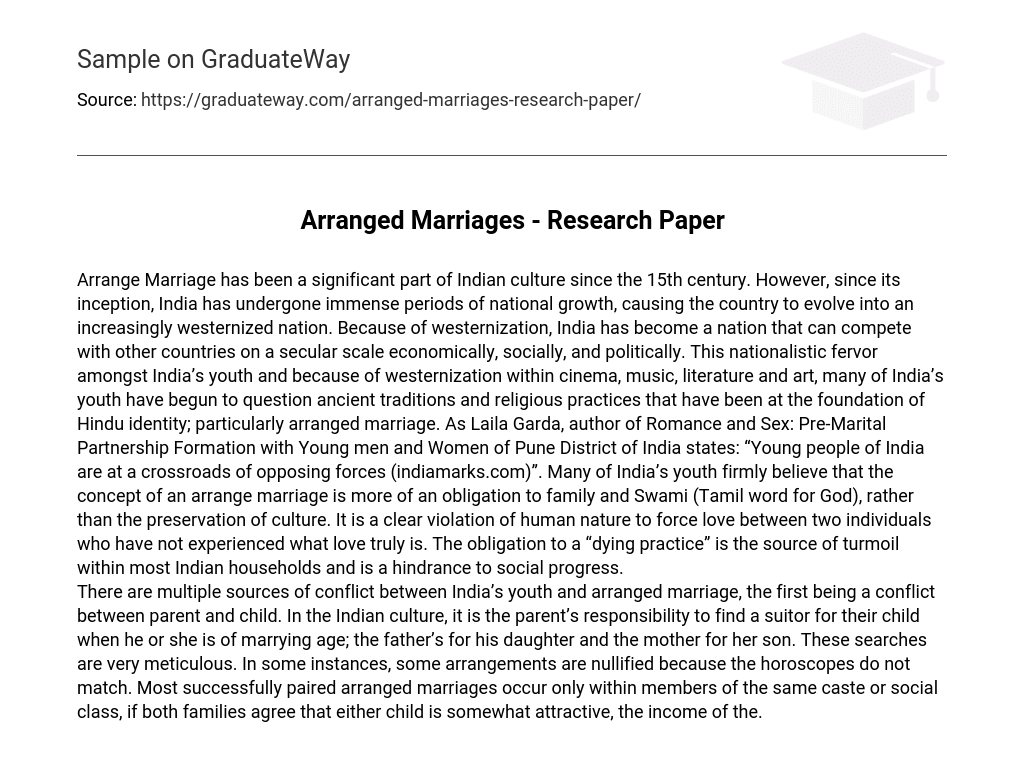Arrange Marriage has been a significant part of Indian culture since the 15th century. However, since its inception, India has undergone immense periods of national growth, causing the country to evolve into an increasingly westernized nation.
Because of westernization, India has become a nation that can compete with other countries on a secular scale economically, socially, and politically. This nationalistic fervor amongst India’s youth and because of westernization within cinema, music, literature and art, many of India’s youth have begun to question ancient traditions and religious practices that have been at the foundation of Hindu identity; particularly arranged marriage. As Laila Garda, author of Romance and Sex: Pre-Marital Partnership Formation with Young men and Women of Pune District of India states: “Young people of India are at a crossroads of opposing forces (indiamarks.com)”. Many of India’s youth firmly believe that the concept of an arrange marriage is more of an obligation to family and Swami (Tamil word for God), rather than the preservation of culture.
It is a clear violation of human nature to force love between two individuals who have not experienced what love truly is. The obligation to a “dying practice” is the source of turmoil within most Indian households and is a hindrance to social progress. There are multiple sources of conflict between India’s youth and arranged marriage, the first being a conflict between parent and child. In the Indian culture, it is the parent’s responsibility to find a suitor for their child when he or she is of marrying age; the father’s for his daughter and the mother for her son.
These searches are very meticulous. In some instances, some arrangements are nullified because the horoscopes do not match. Most successfully paired arranged marriages occur only within members of the same caste or social class, if both families agree that either child is somewhat attractive, the income of the.





